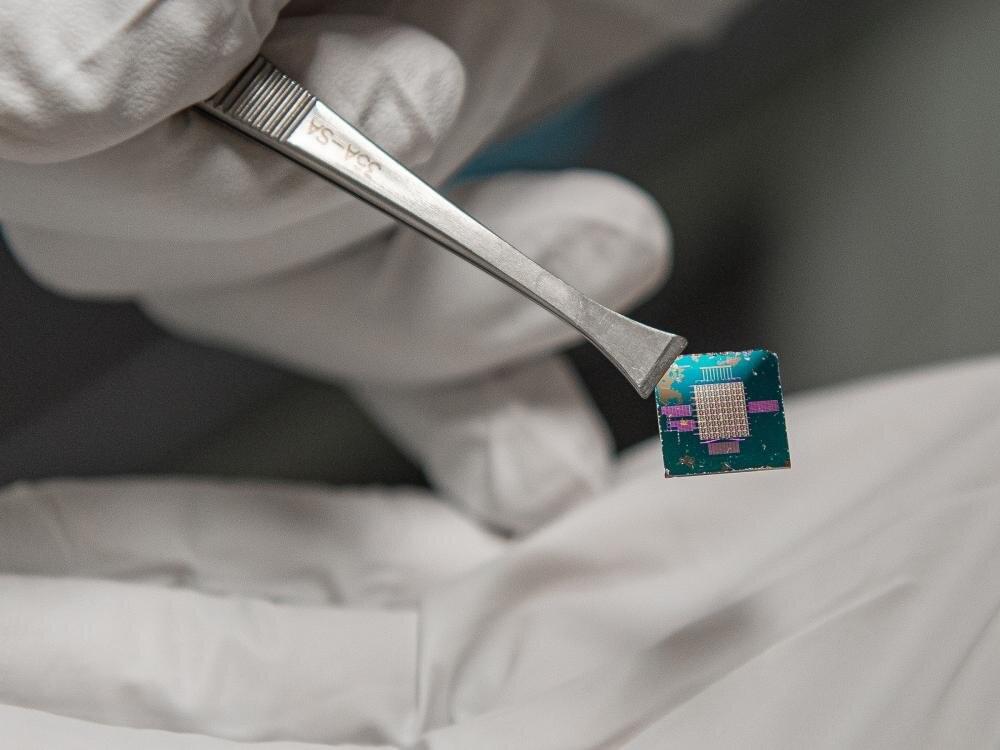Digital information is everywhere in the era of smart technology, where data is continuously generated by and communicated among cell phones, smart watches, cameras, smart speakers and other devices. Securing digital data on handheld devices requires massive amounts of energy, according to an interdisciplinary group of Penn State researchers, who warn that securing these devices from bad actors is becoming a greater concern than ever before.
Led by Saptarshi Das, Penn State associate professor of engineering science and mechanics, researchers developed a smart hardware platform, or chip, to mitigate energy consumption while adding a layer of security. The researchers published their results on June 23 in Nature Communications.
“Information from our devices is currently stored in one location, the cloud, which is shared and stored in large servers,” said Das, who also is affiliated with the Penn State School of Electrical Engineering and Computer Science, the Materials Research Institute and the College of Earth and Mineral Sciences’ Department of Materials Science and Engineering. “The security strategies employed to store this information are extremely energy inefficient and are vulnerable to data breaches and hacking.”









Comments are closed.